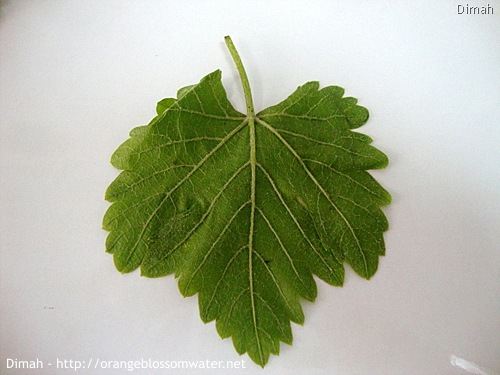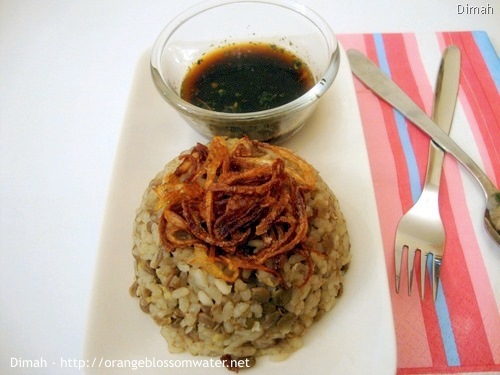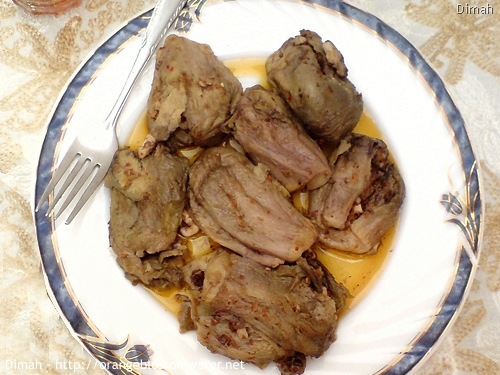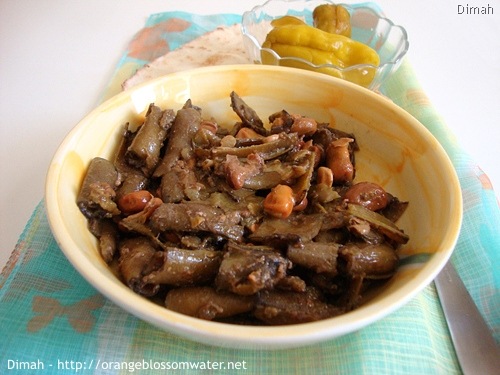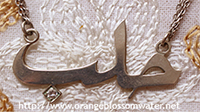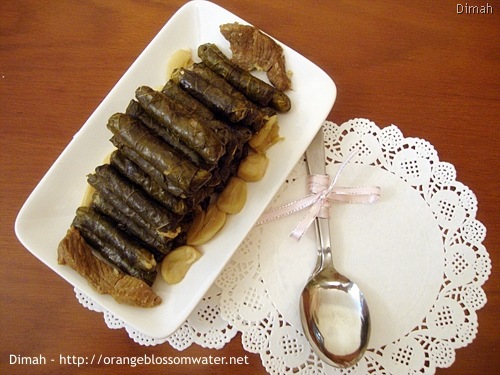
Last year I posted Yalanji (stuffed grape leaves), and today’s post is about Yabraq which is also stuffed grape leaves, the differences between Yalanji and Yabraq are:
Yalanji: The filling is rice and vegetables, the size of the grape leaf that is used is large, and the rolled leaves look thick.
Yabraq: The filling is rice and meat, and cooked in lemon juice, the size of the grape leaf that is used is medium and small, and the rolled leaves look thin and tall like cigarettes.
Let’s make Yabraq:
